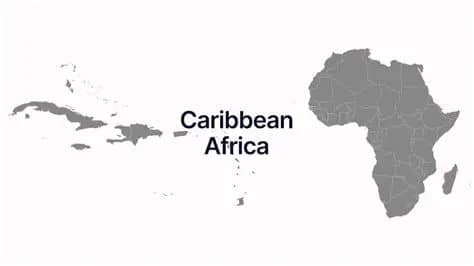by Hon. Thomas Christopher Famous JP, MP Bermuda
A few days ago, the following question was posed in a Whatsapp chatgroup.
“Do Caribbean people see themselves as African?”
Let us drill down on it a bit. We are Caribbean peoples. Which by definition means many/most of us are here in or from the region because untold numbers of our ancestors were forcibly taken from the West Coast of Africa over the course of 400 years by the European nations of Britain, France, Denmark, Spain, the Netherlands and Portugal. This was to feed an endless supply of free labour for their plantations in the Caribbean region between the years of 1500-1900.
There is no doubt that when many of us do DNA tests there will be an overwhelming percentage of results from countries such as Nigeria, Ghana, Senegal, Ivory Coast, Angola and Benin. This not discounting some/many of us have varying percentages of Indigenous, European or Asian DNA admixtures as well. Indeed, many in the Caribbean region have no traceable African DNA.
Unfortunately, due to 400-500 years of colonialism, racism, classism and colourism, far too many of us that do have African DNA reject that we are African. Likewise, many from the continent do not accept us as African.
“Africa for Africans and home and abroad” Marcus Garvey
Africa’s total population is over 1 billion and growing. The total Caribbean population is less than 40 million and shrinking. Africa has every raw product / fresh food conceivable to mankind. However, due to current global economics and trade routes Caribbean governments, private sector entities and individuals can only purchase finished products from China, North America and the EU. As we have seen recently, we are subject to ever increasing prices for those goods.
So, the only people really benefitting financially from the continued division are the same folks who divided us 500 years ago. This was/is all by design. Governmental organisations such as CARICOM and the African Union are only now starting to attempt to bridge those tourism, cultural and trade gaps. Ask ourselves these questions: Why can’t we have ships of fresh food and goods sailing from Africa to the Caribbean? Why must we depend primarily on tourists from North America and Europe?
In my opinion it will be a very long journey for us in the Caribbean to fully accept from whence we came and equally, for those in Africa to acknowledge that we are indeed the children of the millions taken from their homes hundreds of years ago. However, we must start somewhere. Let us remember the prophetic words of Rt. Hon. Robert Nesta Marley “How good and how pleasant it would be before God and man, yeah to see the unification of all Africans.”


